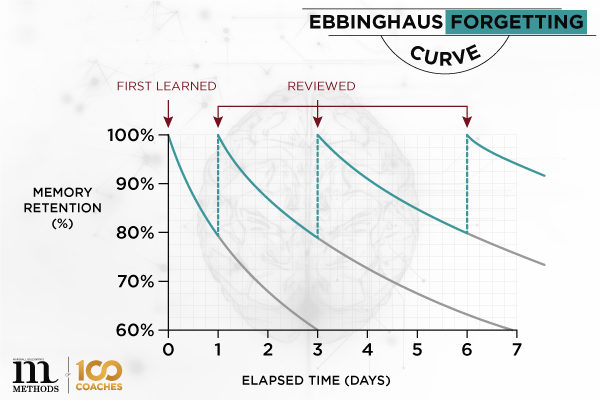In our fast-paced modern world, the demands of life often leave us feeling overwhelmed. Between work, family, and attempting to carve out some precious free time, it’s no surprise that burnout is a familiar concept to many of us. Unfortunately, the group most susceptible to burnout often goes unnoticed – leaders.
While we frequently discuss employee burnout, the burnout experienced by leaders and managers is equally, if not more, devastating and widespread. When a leader faces burnout, it can feel like they are failing their team, and the fear that everything will crumble if they take a break can be paralyzing. Advising a burnt-out employee to prioritize self-care is one thing, but what about leaders responsible for the livelihoods of many others? Leaders’ stress is compounded by their obligations to the organization, their job roles, and their responsibility to safeguard their team’s employment. Therefore, leader burnout is a very real threat to teams and organizations everywhere. According to a 2020-2021 Gallup survey, “manager burnout is on the rise,” and if this trend continues, it could become an epidemic.
Consider the impact of the pandemic, which forced many companies into remote work for the first time. Managers bore the brunt of this transition, trying to maintain productivity levels while navigating an unprecedented shift in work dynamics. Much has been said about the challenges faced by employees, especially parents with increased caregiving responsibilities. However, not enough attention has been given to how this shift affected leaders. Factor in the “Great Resignation” and economic uncertainty, and you have a recipe for burnout.
The good news is that burnout isn’t a permanent state, but recognizing it is the crucial first step toward a solution.
Here are some clear signs that you might be on the brink of burnout:
- Physical and Mental Exhaustion: You’re not just mentally drained but physically exhausted by the end of the day. While it’s common that, after a full eight hour work day, you’re going to be tired, you shouldn’t feel as though all you are able to do is collapse right into bed.
- Sleep Troubles: You struggle to get a good night’s sleep, which often comes contradictory to the fact that you’re completely exhausted, compounding both problems exponentially.
- Frequent Headaches: You experience regular headaches, possibly stress-related, or possibly sleep-related, often resorting to taking medication frequently to treat the problem, but never resolving the underlying issue.
- Cynicism and Negativity: You have a pervasive cynical or negative outlook on your job, career, and colleagues, especially one that has developed in place of a normally positive, forward-looking attitude.
If any of these signs resonate with you, it’s time to take action to “cool” things down:
- Recognize Early Warning Signs: Acknowledge these signs and take them seriously. Don’t ignore changes in your day-to-day mood or sleep patterns. Know when you’re nearing the edge so you can take a step back.
- Delegate and Prioritize: Don’t try to do it all yourself. Delegate tasks whenever possible to lighten your load. Also know what is really important and what can wait; prioritized to-do lists can greatly increase efficiency and reduce stress.
- Seek Help: You don’t have to have all the answers. Trust your team and be open to seeking assistance when needed. Outside of work, talk to a trusted friend or family member, or, a professional licensed therapist. No one is above asking for help, especially leaders.
- Set Boundaries: Establish clear boundaries between work and personal life. Avoid late-night emails and last-minute meetings that disrupt your essential tasks. Let your team know that you’re setting an example by setting a boundary, and in doing so your team will not only help you in your efforts to reduce your own burnout, but will model how they can do the same for themselves.
- Prioritize Sleep: Aim for 6-8 hours of quality sleep each night.
- Maintain a Healthy Diet: Consume foods that nourish and energize you, enhancing your focus and overall well-being. Avoid fast or convenient foods with low nutrient content.
- Regular Exercise: Incorporate physical activity into your routine, even light cardio, to naturally alleviate stress and improve sleep quality.
While leadership can often feel isolating, remember that you’re not alone. Every leader is responsible for more than just themselves. It’s vital to invest in self-care to prevent burnout, enabling you to continue positively influencing your team and providing stability and strength to your organization. Burning out is the worst thing a great manager can do because it makes them unavailable to support their team.
While this list isn’t exhaustive, following these tips can help you avoid burnout and keep your leadership skills strong. Other potential solutions include companies offering more resources to ensure employee health: gym memberships, generous PTO policies, and education such as from Methods of 100 Coaches where teammates and leaders can learn strategies for well-being, happiness, and reducing burnout.
Remember, recognizing burnout is the first step to combating it. Prioritize your well-being, and you’ll be better equipped to lead effectively and lead your team to success.
Sources:
- https://www.psychologytoday.com/us/blog/you-according-to-them/202303/how-to-manage-leadership-burnout
- https://www.speexx.com/speexx-blog/leadership-and-burnout-how-to-avoid-burnout-as-a-leader/#:~:text=Having%20a%20support%20system%20can,for%20yourself%20and%20your%20team.
- https://blog.vantagecircle.com/leadership-burnout/
- https://www.jodymichael.com/blog/how-to-avoid-leadership-burnout/





